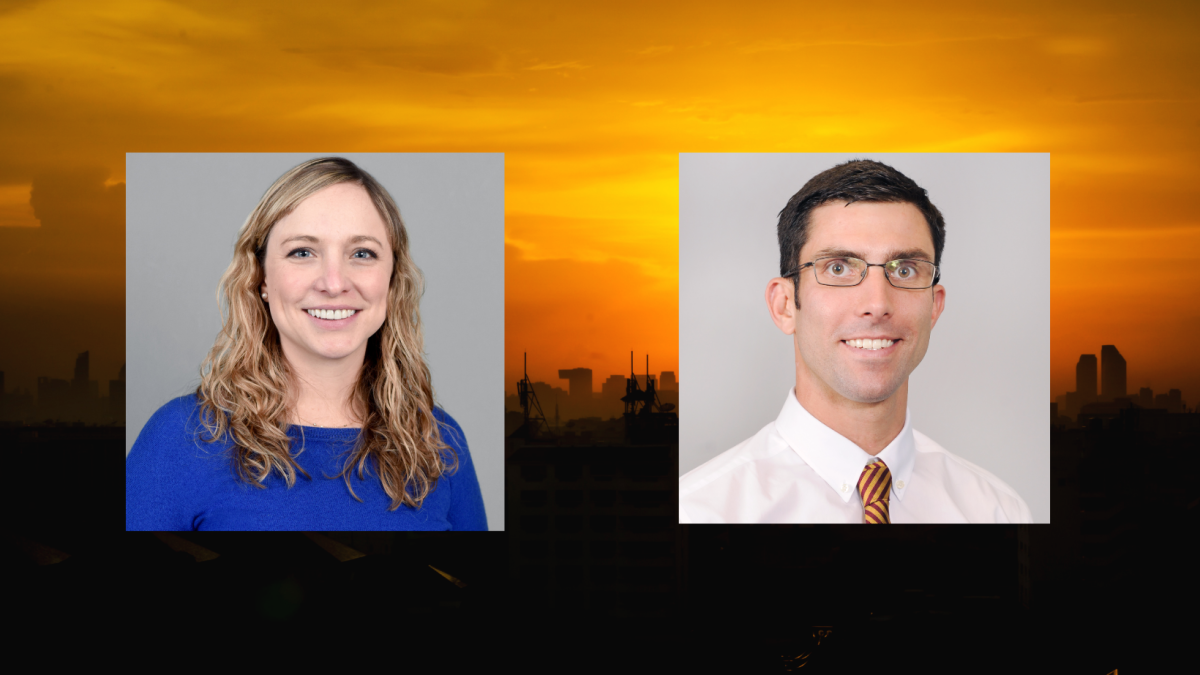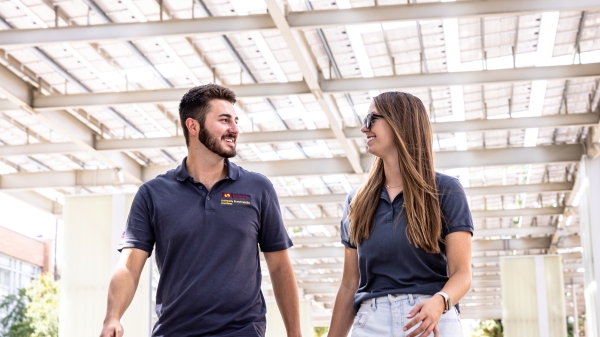ASU researchers call for heat governance to protect vulnerable populations

Sara Meerow, assistant professor in ASU’s School of Geographical Sciences and Urban Planning, and David Hondula, associate professor in the school.
The impacts of heat are intensifying. This past June, the western United States saw temperatures soar 30 to 40 degrees Fahrenheit higher than average, sending more than 1,000 people a day in Oregon and Washington to the emergency room for heat-related illness. July 2021 was the hottest month ever recorded globally, and in August, southern Europe saw its record highs when Sicily reportedly hit 119.8 F.
In a commentary paper published in Nature this week titled “Deploy heat officers, policies and metrics,” Assistant Professor Sara Meerow and Associate Professor David Hondula, both in Arizona State University’s School of Geographical Sciences and Urban Planning, propose a set of guiding principles for researchers and government, and nonprofit and private-sector decision-makers to take real action in the face of this multifaceted threat.
“People are waking up to the growing threat that extreme heat poses for communities everywhere, but coordinated efforts to mitigate heat and manage inequitable risks are still lagging behind,” said Meerow, whose research at ASU focuses on city resilience in the face of a changing climate. “In this article, we outline some of the key research and policy developments needed, from more consistent metrics to new national heat policies.”
The paper brings together five co-authors, led by Ladd Keith of the University of Arizona, who each provide different expertise critical to heat governance, including urban planning and design, public health and climate services.
“Our multi-author team is part of a small but growing community of researchers who are really focused on the heat problem and finding solutions to it,” said Hondula, who was recently appointed to lead the nation’s first publicly funded office focused on heat response for the city of Phoenix. “Writing a piece collectively shows that there is broad interest and motivation to accelerate research efforts in support of improving heat governance.”
The authors’ proposed six guiding principles speak directly to the need for a clear model for addressing heat, particularly for those most at risk — the marginalized, poor, young, older, homeless, institutionalized and those with pre-existing medical conditions.
The vision of heat governance proposed by the authors would in part do the following: advance heat justice; include both heat mitigation and management goals with corresponding metrics; foster collaboration between disciplines, sectors and levels of government; and be supported by robust national heat institutions.
“Heat is a complex and deadly hazard. We have made a lot of progress in understanding physical dynamics and social inequities. Now, we need to figure out what governance structures, or what institutions and processes, are most effective in addressing it,” Meerow said. “I hope that this inspires researchers, government agencies and other decision-makers to come together and build new institutions that tackle heat holistically in diverse communities.”
Additional authors on the paper include V. Kelly Turner of the University of California, Los Angeles, and James C. Arnott of the Aspen Global Change Institute.
More Environment and sustainability

Charles Redman, founder of the School of Sustainability, faces a new adventure: Retirement
At the retirement celebration for Charles Redman on Oct. 22, two messages persisted: Redman’s contributions to Arizona State…

10 climate insights to guide our future
A group of globally renowned social, natural and climate scientists has once again convened to offer their newest annual…

The future is green: Job demand translates to high employability for ASU sustainability grads
A 2023 report by Forbes on the state of green jobs confirmed what Arizona State University has been trumpeting for years:…